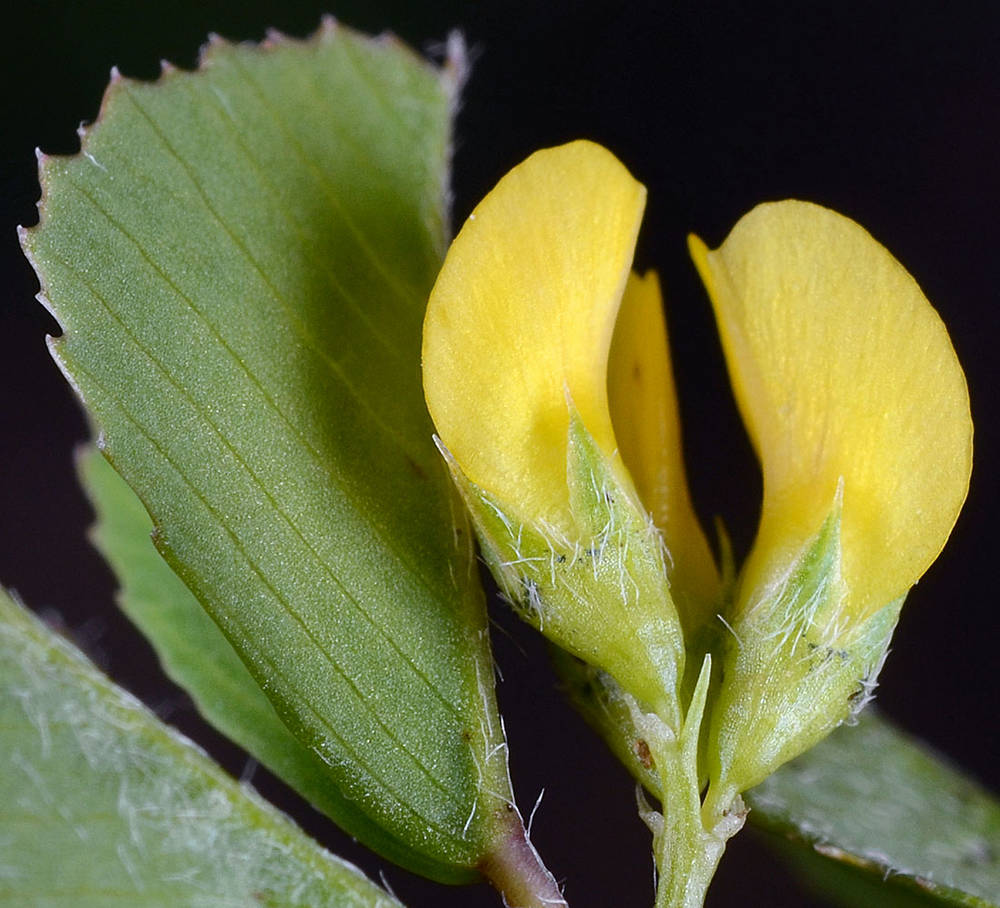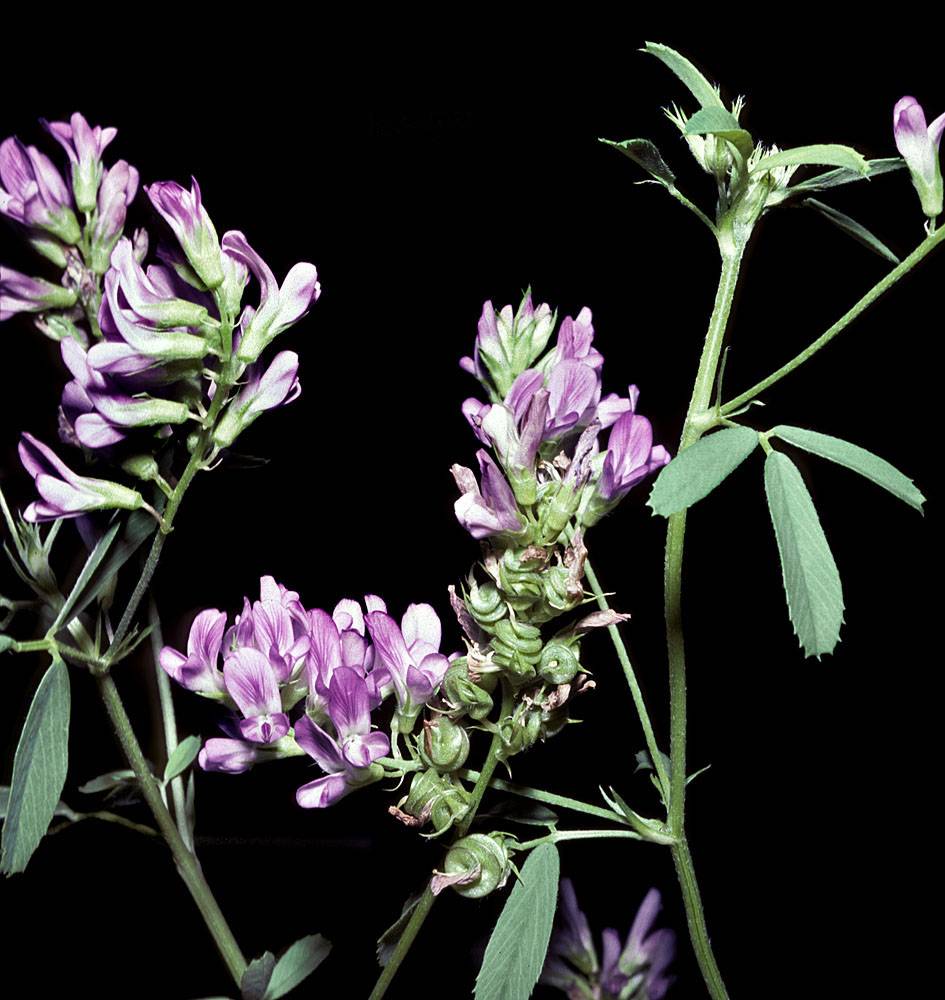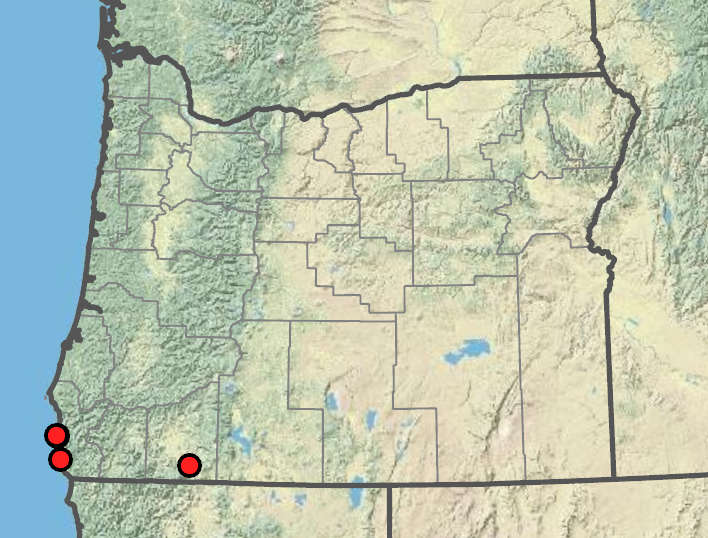Medicago praecox
Medicago sativa
early medic, Mediterranean medic
alfalfa, lucerne
decumbent, glabrous to sparsely pubescent.
decumbent to erect, glabrous to puberulent.
pinnate;
leaflets wedge-shaped or obovate; length > width, 3–8 mm, bases cuneate;
margins distally denticulate;
veins raised;
tips emarginate;
surfaces abaxially slightly pubescent, adaxially glabrous;
petioles 2–5 mm;
petiolules 0.5–2 mm;
stipules 2–4 mm;
margins strongly lacerate.
sub-palmate;
leaflets narrowly lanceolate to obovate; length > width, 8–29 mm, bases cuneate;
margins distally serrate;
veins prominent;
tips truncate to rounded;
surfaces pubescent;
petioles 3–15 mm;
petiolules 1–6 mm;
stipules 6–14 mm;
margins entire to sharply toothed.
1–3-flowered;
peduncles 1.5–3 mm;
pedicels 0.5–1 mm.
8–30-flowered; ovoid to oblong;
peduncles 8–40 mm;
pedicels 1–3 mm.
calyces 1.5–2 mm;
corollas 2.5–4 mm, yellow or variegated yellow-purple; ephemeral.
calyces 4–5.5 mm;
corollas 8–10 mm, violet or variegated yellow-violet.
spirally coiled 3–4 turns; spherical or disk-like, 5–10 mm, sparsely hairy; dorsal sutures spiny;
spines hooked, 2–3 mm.
spirally coiled 2–3 turns, rarely sickle-shaped, with doughnut-like hole visible in center of coils, 3–5 mm, villous, unarmed.
several, reniform, 1.7–2.4 × 0.9–1.3 mm, yellow to brownish yellow.
several, reniform, 1–2.5 × 1–1.5 mm, yellow; brownish; greenish yellow or violet-brown.
=14.
=16, 32.
Medicago praecox
Medicago sativa
Gravelly and grassy areas, roadsides, near beaches. Flowering Apr–May. 0–300 m. Est. CA; Australia, Europe. Exotic.
Medicago praecox has tiny flowers that appear similar to M. polymorpha, but the leaflets of the latter are usually glabrous and generally twice as long as those of M. praecox. Medicago praecox also has fewer flowers per inflorescence.
Sandy or rocky areas, riparian areas, fields, roadsides, disturbed areas. Flowering Jun–Aug. 0–1500 m. BR, Casc, Col, CR, ECas, Lava, Sisk, WV. CA, ID, NV, WA; worldwide. Exotic.
Medicago sativa is the only Oregon species with purple or variegated flowers and with coiled, non-spiny fruits containing several seeds. It also has the largest flowers (approaching 1 cm in length) and more flowers per inflorescence than most of our other species. Medicago sativa is commonly used as a cover crop or green manure.
Nurul Khalib, Melanie Link-Perez
Nurul Khalib, Melanie Link-Perez
- Local floras:
BC,
CA,
OR,
WA
- Local Web sites:
CalFlora,
CalPhotos,
Flora NW,
PNW Herbaria,
Turner Photog.
WildflowerSearch
iNaturalist (observations)
USDA Plants Database
- LBJ Wildflower Center
- SEINet
- Plants of the World Online
- Encyclopedia of Life
- Wikipedia
- Google Image Search





